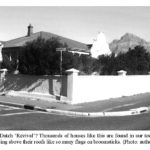The Socio-Economic Rights Institute of South Africa (SERI)
No comments yetwww.seri-sa.org. The Socio-Economic Rights Institute of South Africa (SERI) is a non-profit organisation providing professional and dedicated socio-economic rights assistance to individuals, communities and social movements in South Africa.
SERI conducts applied research, engages with government, advocates for policy and legal reform, facilitates civil society coordination and mobilisation, conducts popular education and training, and litigates in the public interest (the SERI Law Clinic is registered as a public interest law centre).
Our thematic areas are:
- housing and evictions;
- access to basic services; and
- political space.
Housing and Evictions
Of all socio-economic rights, the right of access to adequate housing has been the most developed through Constitutional Court cases, many of which have been actively participated in by SERI’s co-founders. This means that there is a body of work to use as a basis of advocacy and litigation.
However, while jurisprudence has established, for example, that poor people should not be evicted without the government providing adequate alternative accommodation, a number of crucial gaps remain. One of these is that there is insufficient research on the nature and attributes of alternative accommodation required by people under threat of eviction. Another is the need to combat state efforts to exclude classes of people from the provision of alternative accommodation as a means of narrowing the scope of their obligations to provide housing. Yet another is the lack of a co-ordinated civil society sector response to deficiencies in the implementation of housing policies. Agendas remain to be developed, and community-based organisations do not receive the necessary expert assistance from lawyers and policy specialists to properly develop and implement the agendas that they have identified without assistance. Too many community-based organisations (CBOs) lack the resources necessary to resist forced evictions and engage critically with pre-determined upgrading and relocation plans, which are often presented to them as faits-accomplis.
Read more: http://www.seri-sa.org/
You May Also Like
Comments
Leave a Reply






